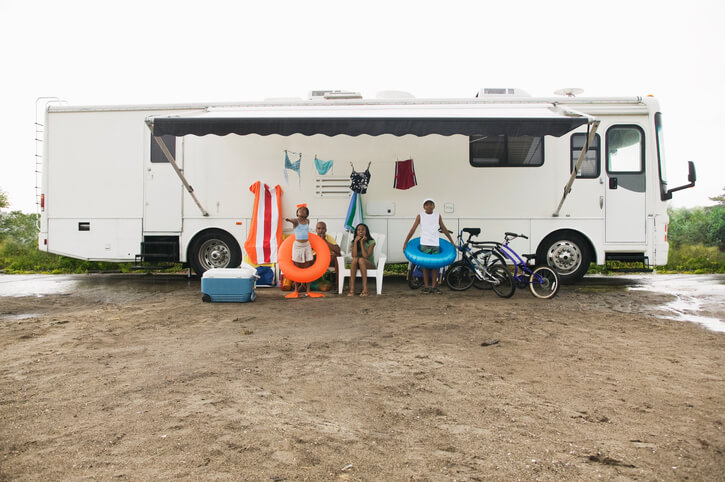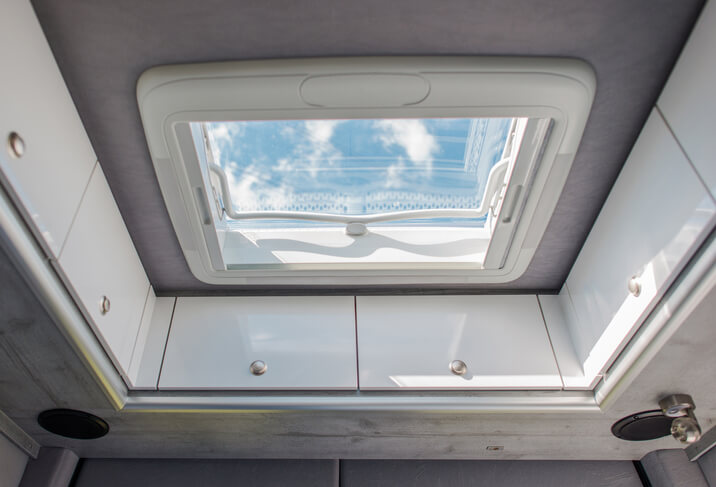RV Maintenance Guide: 10 Things You Need to Monitor
Contents
RV maintenance is all part of owning an RV, although the RV gives you an incredible amount of mobility and liberty. Because with an RV you are able to spend an extended amount of time on the road, exploring scenic roads and beautiful national parks.
Alongside its many perks, being an RV owner also gives you a lot of responsibilities. It doesn’t really matter how much time you spend on the road in your RV, the vehicle will need routine maintenance in order to ensure that your motorhome is roadworthy and comfortable.
It can be easy to overlook seemingly insignificant RV maintenance, however, failing to properly maintain your RV can lead to severe damage and thousands of dollars in major repairs.

To avoid these major repair costs, Kirkland RV has detailed a list providing you with our top 10 tips for maintaining your RV so that this summer finds your RV 100% road ready.
10 Ways to Get Your RV Road Ready
1. Tires and Wheels
RV tires generally have a ten-year lifespan. After ten years of use, your RV tires will be worn and in need of replacing. Something you can do in order to mitigate some of the wear and tear on your
RV tires is to routinely rotate them. Rotating your RV tires will ensure that they aren’t wearing out at different speeds and will evenly distribute the wear. This will help you prevent unexpected blow-outs and will increase the overall performance and lifespan of your tires.
You should also be frequently checking your tire pressure. Check your tire pressure before every long drive and also take the opportunity to check your lug nuts to ensure that they are tight.
2. Brakes
Neglecting to maintain your RV brakes can prove dangerous to you as well as other motorists.
Having to replace brake pads, rotors, or other necessary parts of your brake system has the potential to be costly, so in order to avoid high costs, it is imperative that you regularly maintain your brakes.
3. Oil Changes
Running your RV on old oil can do serious damage to your RV’s engine. Making this error can cost you well into the thousands of dollars and it may even be necessary to replace your engine if you have been running it on dated oil for too long.
This is a key factor in RV maintenance so you avoid this expensive inconvenience. You should be routinely changing your oil and filters. You can consult your RV manual to see what is recommended for how often you should be changing both.
4. Roof
Depending on the material of your roof, you may need to get it treated annually or bi-annually. To prevent sun damage and leaks from being created treat your roof as often as is recommended in your RV’s manual.

Allowing your RV to develop leaks because of failure to maintain its roof can be a costly mistake. To mitigate this risk, you need to be properly maintaining and treating your RV’s roof and windows.
5. Inspect seams and seals
Along with maintaining your RV’s roof, you must also remember to regularly inspect the seams and seals around your RV.
Humidity, sunlight, as well as a number of environmental factors, can all play a role in loosening or damaging your RV’s seals.
Damaged seals can allow leakage and lead to mold damage. To avoid allowing leaks or cracks to form in your RV’s seals you should inspect all of the seams and fill any cracks you find with high-quality silicone or sealant.
6. Water and Sewer
Properly maintaining your water and sewer systems means using RV recommended toilet paper (biodegradable toilet paper) and using proper cleaning chemicals in your wastewater system that will prevent and minimize buildup in the pipes.
Having a sewer or wastewater issue while on the road can prove a massive inconvenience and take an extensive amount of time to remedy. Making sure to properly maintain your RV’s water and sewer pipes is essential in having a fully-functional RV septic.
7. Lights
It is dangerous to operate a vehicle that doesn’t have working headlights or taillights.
You should be checking all of the lights before each trip to ensure that they are still working properly.
8. Air filters
The air filters in your RV should be checked and replaced regularly. Replacing old filters will prevent excess dust throughout your RV and will make sure that your air conditioner and other ventilation systems are fully functional.
9. Check batteries
You should be having your battery checked before each trip. RVs typically require a battery replacement every three to five years.
If you are planning a long summer road trip and your RV’s battery is coming to the end of its three to five years it may be a good idea to just go ahead and replace it prior to your trip.
Keeping your RV’s battery in good condition will ensure that your road trip goes as intended and you aren’t stranded in a remote location needing a new battery.
10. Use RV Products
When it comes to cleaning and maintaining your RV, we recommend that you only use products that are RV specific. Using products or cleaners that are designed for home use can damage furniture or functionality in your RV. Having things repaired can have a far greater cost than buying RV specific products.
There are many resources available to RV owners in regards to cleaning and maintaining and we would advise you to utilize these resources instead of simply trying to use a household equivalent.
RV Maintenance Experts Near You
While maintaining your RV may seem like a lot of work, properly maintaining your RV is a form of investing in your property so that you are able to get the full amount of potential from your vehicle.
If you are in need of assistance with maintaining, assessing, or repairing your RV, we at Kirkland RV are here to help. Our expert team of RV technicians will be able to assess the state of your RV and will help you make any repairs necessary in order to ensure that your vehicle runs efficiently and your road trip goes smoothly. Give us a call or visit our website today for additional details.

